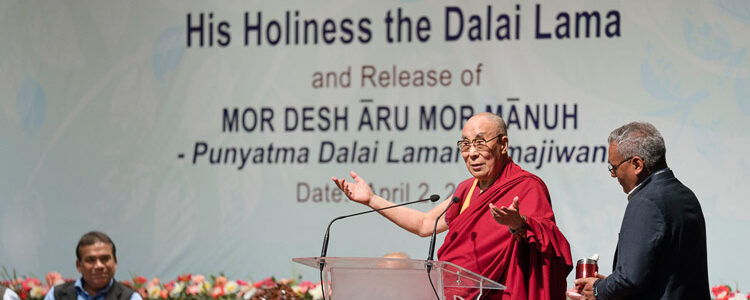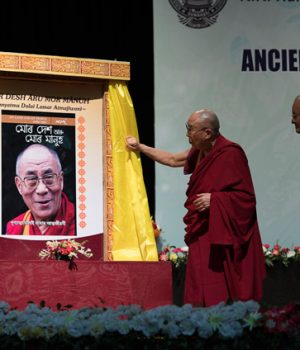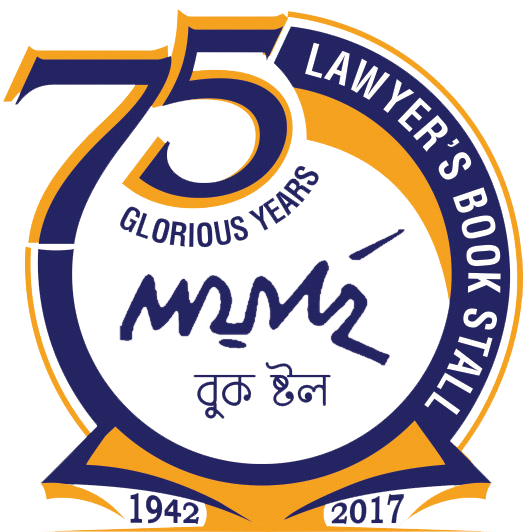His Holiness the Dalai Lama released the Assamese version of his first autobiography, My Land and My People at Gauhati University

On Sunday, April 03, 2017, His Holiness the Dalai Lama released the Assamese version of his first autobiography, My Land and My People at Gauhati University. The book, titled Mor Desh aru Mor Manuh, is one of Lawyer’s Book Stall’s 75th anniversary publications. The detailed news, as per www.dalailama.com is reproduced here.
Guwahati, Assam, India – The sky remained overcast, but the rain had all but stopped this morning as His Holiness the Dalai Lama drove to the Guwahati University Auditorium. His hosts were the Krishna Kanta Handiqui State Open University (KKHSOU), a state university established in 2005 with the motto—Education Beyond Barriers, and the Lawyers Book Stall which has been popular with local students for 75 years. Vice-Chancellor of the University, Dr Hitesh Deka offered traditional felicitations including gifts of a scarf, shawl and bouquet of flowers. Describing His Holiness as ‘symbol of peace’ he also offered him a framed citation, a book and a painting of a scene from the Buddha’s life in which he subdued a crazed elephant. Dr SK Nath of the Guwahati University, which had provided premises for the occasion, also offered his felicitations.
In a short introduction to the occasion, Bhaskar Dutta-Baruah expressed gratitude to His Holiness for coming. He noted that the misfortune that had befallen Tibet had resulted in benefit for many other people across the world who had been enriched by their encounter with representatives of the Nalanda Tradition. He welcomed His Holiness to the erstwhile Kamarupa, a region associated with tantric adepts Naropa and Luipa, as well as the scholar Atisha.
Dutta-Baruah requested His Holiness to unveil and release a fresh translation of one of his earliest books, his memoir, ‘My Land and My People’, into Assamese. The book not only tells the story of His Holiness’s early life, but gives an account of what happened in Tibet up to the point at which he felt bound to escape. The translator, Indrani Laskar, was also introduced to him.
Called upon to address the audience of 1500, His Holiness began in his customary manner. He explained that he greets his listeners as brothers and sisters because he cannot remember all the dignitaries names, but also because he is convinced of the need to promote the oneness of humanity according and the idea that all 7 billion human beings alive today are like brothers and sisters.

